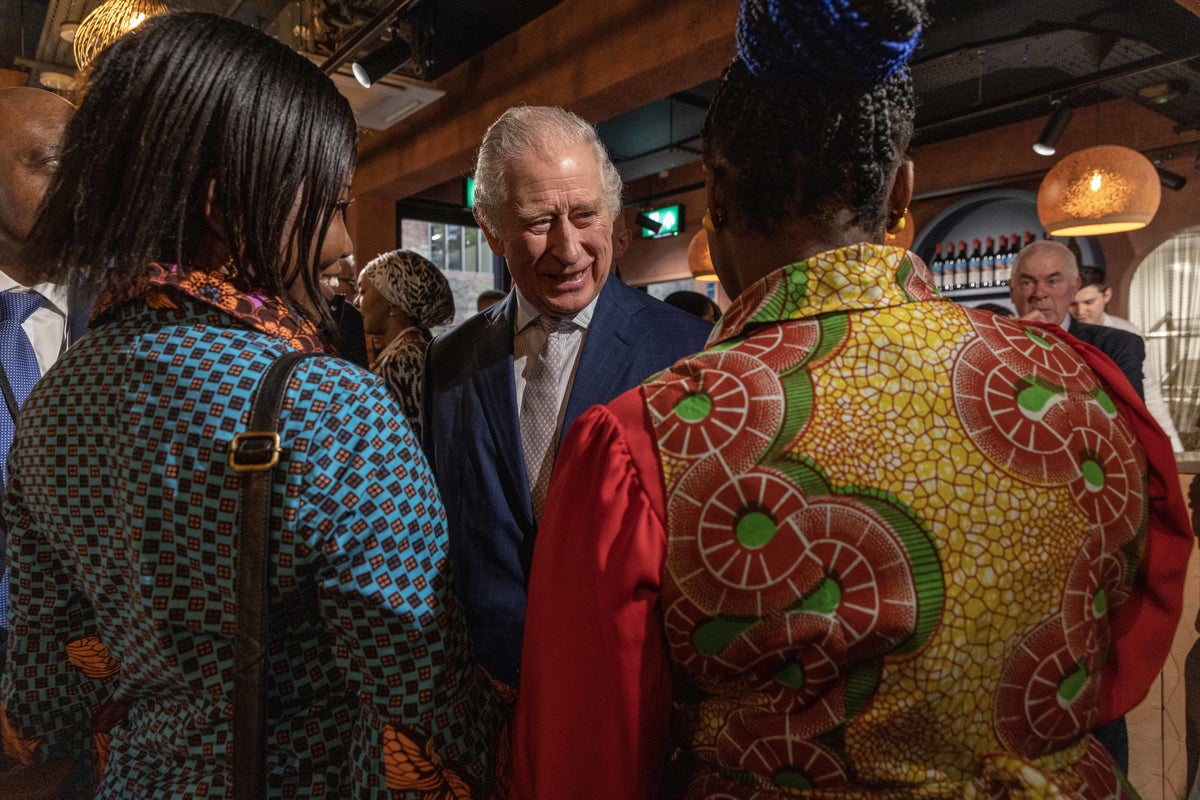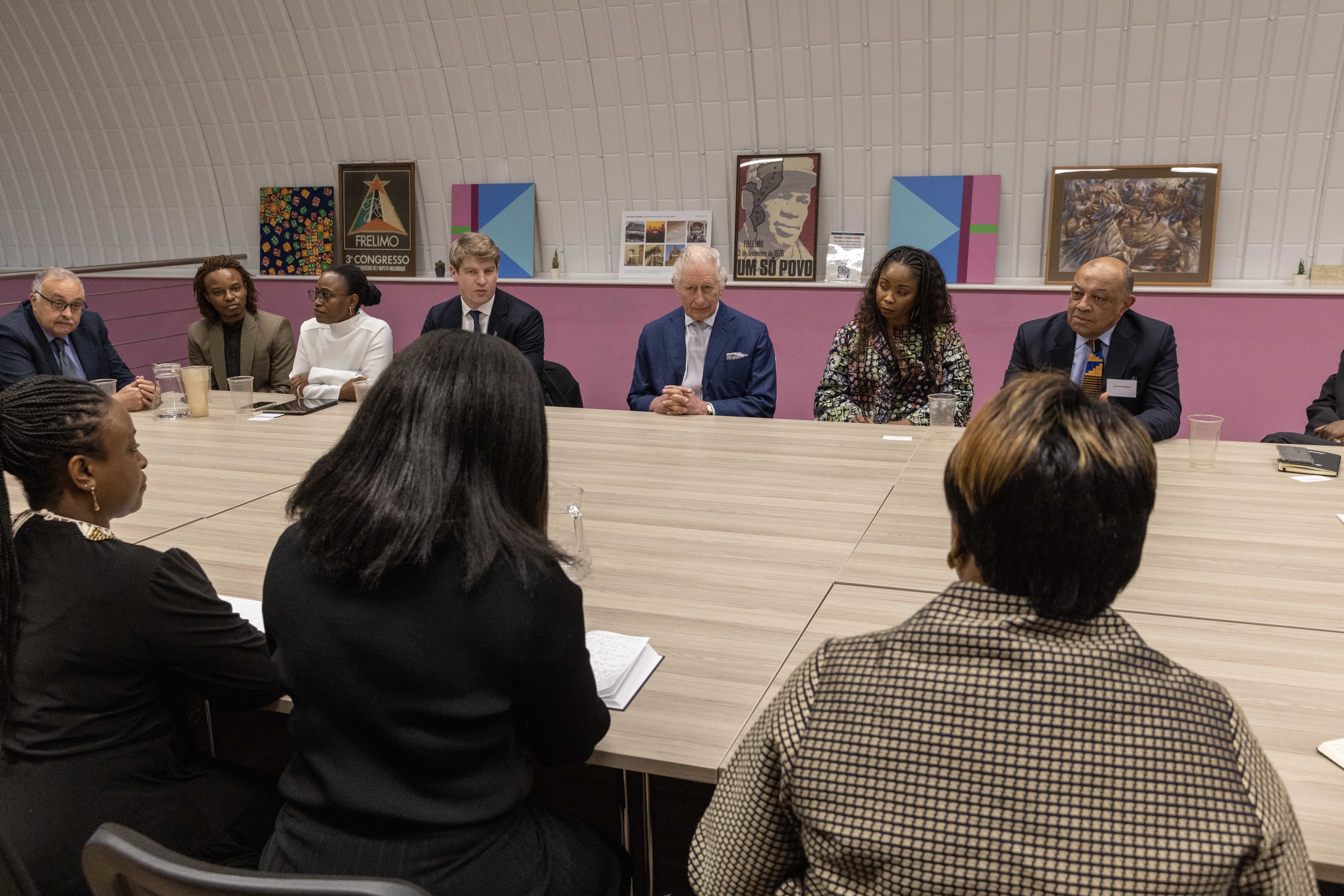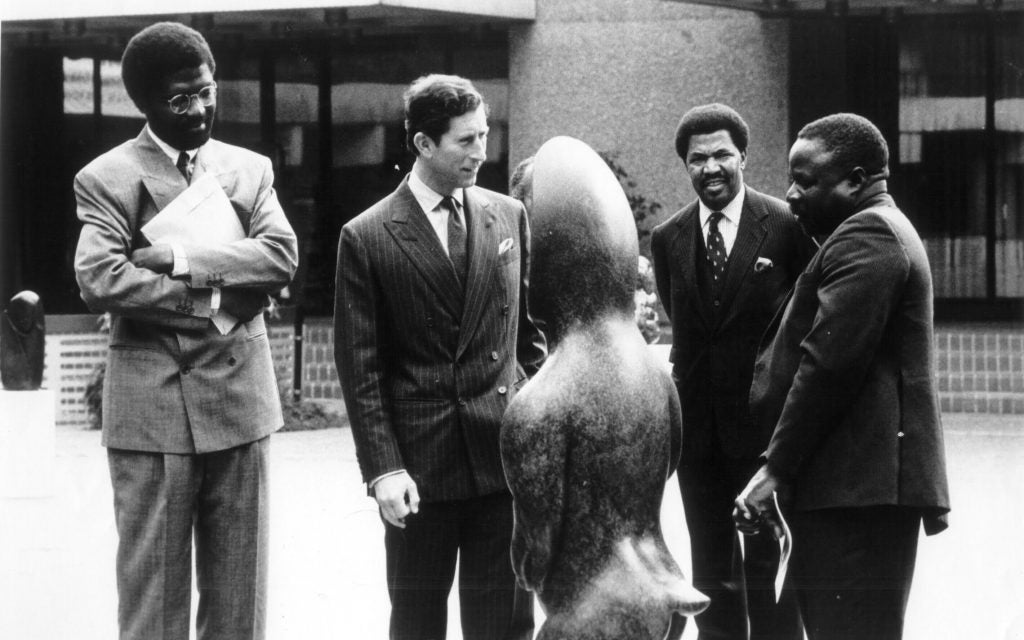
Black British luminaries have dismissed King Charles’s visit to a centre for African culture and heritage as “lip service”, suggesting it was a missed opportunity to address issues of racism.
The King visited the new headquarters of the Africa Centre in London on Thursday, where he viewed a climate change exhibition and heard about “the role the Africa Centre plays in connecting Africans in the UK to the global diaspora”, according to the charity.
But the visit sparked criticism, with one person with a historical connection to the Africa Centre dismissing the visit as a public relations exercise by the palace to “sanitise their battered image” around race. They added that the centre appeared to be “tone deaf” by inviting the King on a “futile” visit.
“Dialogue, interaction or engagements by any supposedly Black organisation with the royal family that does not address the critical issues of colonialism racism, and reparations, is futile and pointless,” the person who asked to remain anonymous told The Independent.
“This visit suggests that the current iteration of the Africa Centre is either poorly advised, tone deaf, disconnected or unconcerned about the feelings and thoughts of Black people across the UK. Either way, it’s a very bad look for the centre.”
With an original remit to foster non-governmental relations between newly independent Africa and Britain, the Africa Centre’s mission today is to educate, connect and advocate for Africa and its global diaspora.

Professor Gus John, an academic and equality and human rights campaigner, described the royal visit as a “wretched and backwards business”.
The academic pointed to King Charles’s editorship of Britain’s leading Black newspaper,The Voice, in October, which prompted immense backlash from Black communities, and the visit to the centre as causes for concern.
“What those inviting Charles to edit their newspaper, or visit their centres, fail to realise is that we as African people stand in a totally different relationship to the British monarchy than the rest of the population, especially white Britain,” Professor John told The Independent.
“It is about time that we use every opportunity to remind the palace of that. It is that relationship which frames demands that the monarchy comes to the table and addresses issues of racial wrongs, of the genocide that they committed or benefitted from, of the ongoing impact of enslavement and dehumanisation upon this and future generations of the descendants of enslaved Africans.”

However, John Mensah, a former trustee of the centre and charity consultant, told The Independent that the visit was a good opportunity to enhance the centre’s status. “The centre’s leadership revere King Charles,” he said.
“I have been told that the centre wants to use this as an opportunity to highlight that the king is a friend of the Black community and create a stepping stone towards the healing process, so the palace may appropriately engage with the community.
“I’m hoping it will be a catalyst for positive engagement.”
Lawyer and media commentator Dr Shola Mos-Shogbamimu told The Independent: “Until King Charles is ready to apologise on behalf of the crown he wears and address reparatory justice, this visit to the Africa Centre is performative and lip service.”
A spokesperson for the Africa Centre: “We acknowledge the strong feelings some of our valued communities have regarding the King’s visit and fully welcome and respect divergence of opinion which we believe can only bring us together.
“This was a historic opportunity not only for His Majesty to tour our recently launched headquarters but also for us to start dialogues on a range of critical issues such as the empowerment of the UK African diaspora, particularly young people, and the impact of climate change in Africa.
“The King has a track record of supporting grassroots and community organisations.”
This was the King’s second visit to the centre. He visited in 1988 to officially open the Zimbabwe Contemporary Stone Sculpture Exhibition, a high-profile exhibition organised by the centre and held at the Barbican.
In June 2022, Charles said he was continuing to “deepen his own understanding of slavery’s enduring impact”, in a speech at the opening of the Commonwealth summit in Rwanda.
The palace declined to comment.







